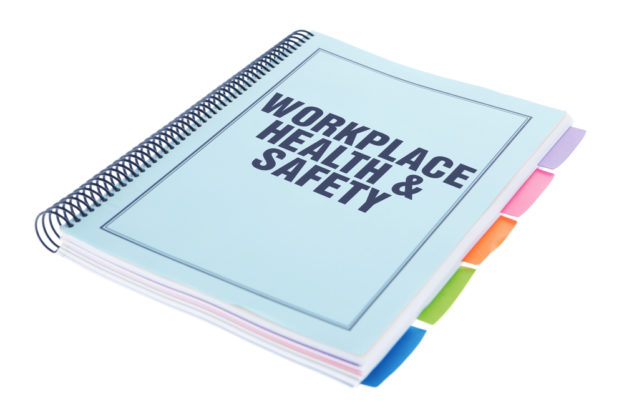
Adam Bouka
by Adam Bouka, Dora Lane, and Greg Saylin
As we move into 2025, California continues its trend of enacting progressive and comprehensive labor and employment laws. The new legislative updates span a range of critical issues, including whistleblowing, discrimination, workplace safety, artificial intelligence, and paid leave. Employers across the state must act swiftly to update their workplace policies and practices to comply with these changes, which take effect January 1, 2025. Below, we outline the most significant updates and what employers need to know.
Whistleblower Protections
California has expanded protections for whistleblowers with two significant updates:
- AB 2299 requires employers to prominently display a list of employees’ rights and responsibilities under whistleblower laws, including the whistleblower hotline number. Notices must use lettering larger than 14-point type. To assist employers, the Labor Commissioner will provide a model list.
- AB 2455 extends whistleblower protections to contractors reporting improper governmental activity while providing services to local governments.

Greg Saylin
Sexual Harassment Training
Under AB 2364, employers must pay increased fees under the Property Service Worker Protection Act to fund sexual violence and harassment prevention training. This change emphasizes California’s ongoing commitment to workplace safety and education.
Employee Benefits
AB 2434 adds new requirements for employer associations offering large group healthcare service plan contracts to small group employer members. The law aims to ensure consistency and fairness in health care coverage options.
Expanded Leave for Victims of Violence
With AB 2499, the California Fair Employment and Housing Act (FEHA) now allows employees to take leave if they or a family member are victims of violence. Employers are also required to provide reasonable accommodations, such as implementing workplace safety measures. Additionally, employees can now use paid sick leave for “safe” time purposes, further expanding the scope of leave protections.
Artificial Intelligence and Robotics
AB 2602 prohibits employment agreements that allow the creation or use of a digital replica of an individual’s voice or likeness to perform work the individual would otherwise perform in person. This law reflects growing concerns over the use of artificial intelligence in the workplace.
Workplace Safety Enhancements
California continues to prioritize safety with these new laws:
- AB 2738 allows local prosecutors to enforce labor code violations in the live entertainment and concert industries.
- AB 2975 mandates that hospitals implement weapons detection screening policies. CalOSHA regulations for these requirements must be adopted by 2027.
Child Labor Transparency
Employers participating in child labor compliance audits must comply with AB 3234, which requires employers to post a clear and conspicuous link to the audit findings on their website. This aims to promote transparency and accountability in addressing child labor concerns.
Strengthened Anti-Discrimination Protections
California is further solidifying its anti-discrimination framework with these updates:
- AB 3281 nullifies waivers that remove protections based on immigration status and empowers the Department of Civil Rights to enforce the federal Age Discrimination in Employment Act.
- SB 1137 clarifies that the Fair Employment and Housing Act (FEHA) protects individuals based on the intersectionality of traits, including combinations of protected characteristics and perceived traits.
- SB 1340 enables local governments to enforce local anti-discrimination laws, provided certain procedural requirements are met.
- Berkeley Ordinance No. 7,905-N.S. bans employment discrimination based on family or relationship structure.
Harassment Protections
Under SB 428, employers now have expanded authority to seek restraining orders on behalf of employees who have been harassed, strengthening workplace safety measures.
Paid Family Leave Enhancements
SB 1090 allows employees to file claims for State Disability Insurance (SDI) and Paid Family Leave (PFL) benefits up to 30 days before the first compensable day. This change enables better planning for leaves of absence.
Paid Family Leave Updates
AB 2123, effective January 1, 2025, eliminates employers’ ability to require employees to use up to two weeks of company-provided vacation before receiving paid family leave (PFL) benefits. This change aligns with California’s ongoing efforts to strengthen employee rights and streamline access to PFL benefits. Employers must now reassess their policies regarding extended leaves, vacation (or PTO), and employee benefits to adapt to this significant shift. The new law also creates opportunities for employers to consider alternative approaches, such as allowing employees to “top off” partial state PFL benefits with vacation pay, which could ease administrative challenges and align with compliance requirements for ordinances like San Francisco’s Paid Parental Leave Ordinance (PPLO).
New Job Posting Requirements
Employers must comply with SB 1100, which prohibits job postings that require a valid driver’s license unless driving is an essential job function and there is no reasonable alternative.
Paid Sick Leave for Agricultural Workers
SB 1105 amends the Healthy Workplace, Healthy Families Act to require paid sick leave for agricultural employees during emergencies such as smoke, heat, or flooding conditions declared by local or state authorities.
Freelance Worker Protections
The Freelance Worker Protection Act (SB 988) introduces stringent requirements for businesses contracting with freelancers. Employers must now provide clear, written contracts with specific payment terms and adhere to timelines for payments.
Restrictions on Mandatory Meetings
SB 399, known as the California Worker Freedom from Employer Intimidation Act, bans employers from requiring employees to attend meetings to discuss religious or political opinions, including union-related matters. Employers are also prohibited from retaliating against employees who refuse to attend such meetings.
What Employers Should Do
With these changes, California employers must take proactive steps to remain compliant:
- Review Policies and Contracts: Update employment agreements and policies to align with new whistleblower, AI, and freelance requirements.
- Audit Payroll: Ensure compliance with updated minimum wage requirements and verify that exempt employees meet new salary thresholds.
- Update Workplace Notices: Display updated whistleblower rights and adjust postings for leave and discrimination protections.
- Train Managers and HR Staff: Provide training on expanded harassment, discrimination, and workplace safety obligations.
- Enhance Safety Measures: Incorporate Narcan in first aid kits and prepare for weapons detection policies where applicable.
California employers must remain vigilant and prepare ahead of time to address these wide-ranging updates. By acting now, businesses can mitigate compliance risks and ensure a smooth transition into the new legal landscape.

